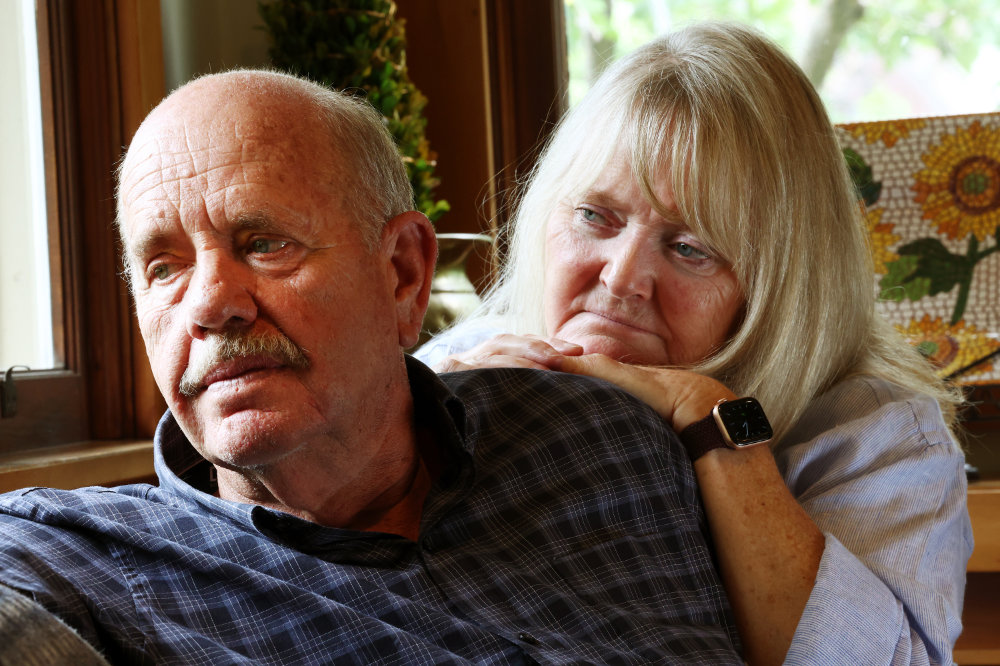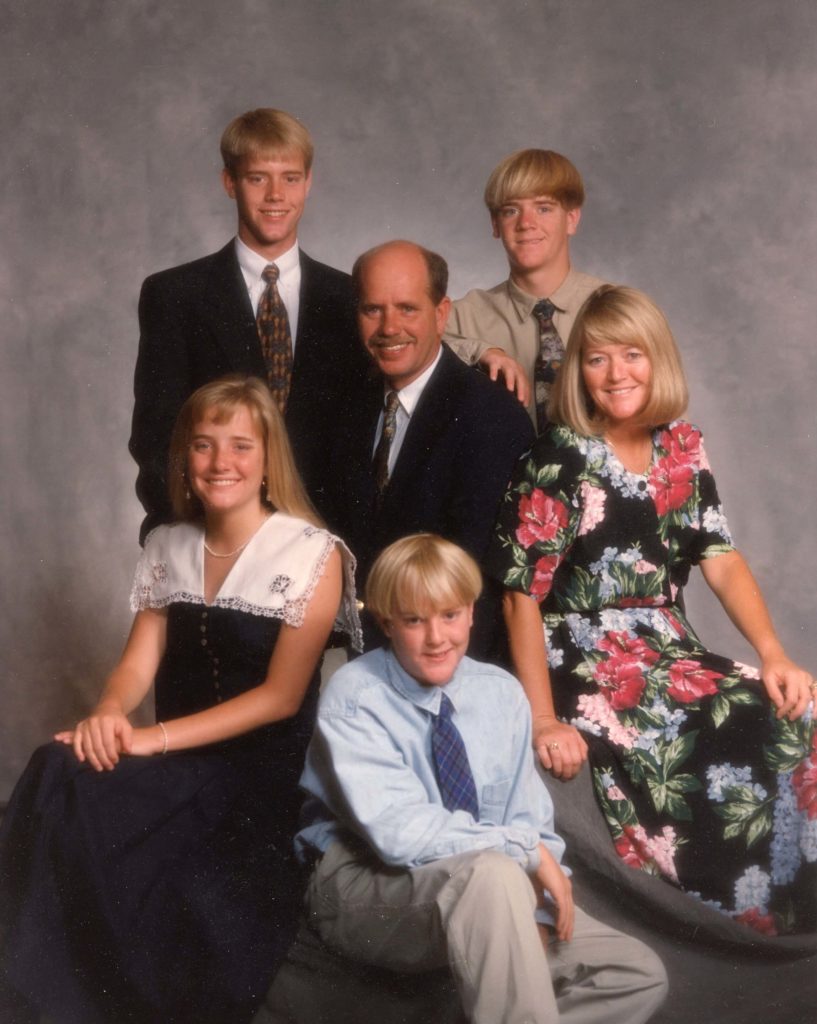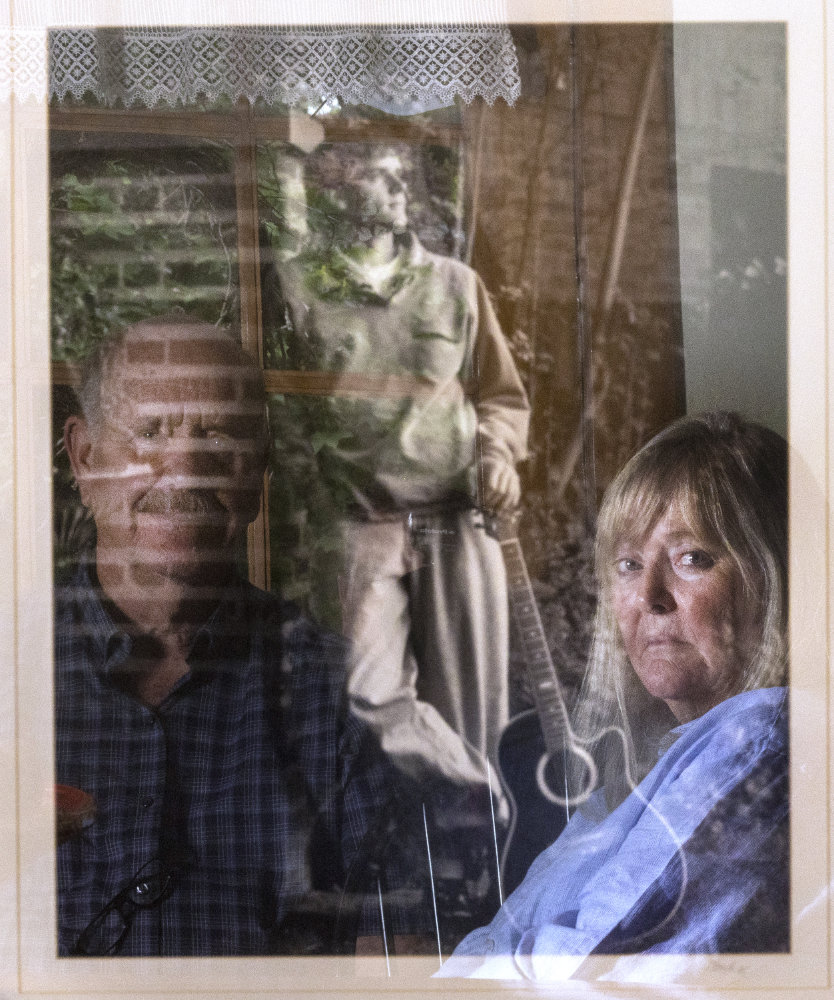
Photo credit: Scott G. Winterton, Deseret News
SALT LAKE CITY — Sy Snarr understood the words coming out of the Salt Lake police officer’s mouth, but somehow, they just didn’t make sense.
“It was just surreal to me, because I just kept thinking … ‘Wake up! This has to be a dream. Wake up,'” she said. “I just kept looking at them, and they said the girl he was with had been shot. She was at the hospital. I’m just like, ‘This can not be happening.’ They went on and on. And I said, ‘Wait a minute. Are you telling me my son’s dead?’
“They just kinda looked at me like, ‘This woman’s not getting it.’ And I wasn’t. It could not be real to me, you know? This could not have happened to him.”
But it did.
What happened to Zachary Snarr and Yvette Rodier rocked the community and garnered national attention.
In an interview a few days after Zach’s murder, Sy Snarr summed up what happened in a few gut-wrenching sentences.
“It was violent, it was senseless,” Snarr said in that interview, “and I will never understand it, I will never accept it.”
A random act of violence
On Aug. 28, 1996, a teenager they’d never met changed the course of their lives with a single violent act. A 19-year-old struggling with whether to use the gun he’d just purchased to end his own life, decided instead to open fire on two strangers on a date as they were setting up camera equipment on the shore at Little Dell Reservoir just outside of Salt Lake City.
It is a decision that sent shockwaves through the community, and it’s continued to reverberate through the lives of those touched by the incident for the last 26 years. For the Snarrs, it changed them in ways they didn’t really even understand or recognize until decades later.
Sy and Ron Snarr revisit that agonizing night and the painful changes that came afterward in a new podcast from KSL: “The Letter.” But this isn’t just a story of loss and grief and all the ways it transforms people. It’s also the story of how those impacted by violence recover, reclaim and rebuild their lives.

And in the case of the Snarr family, it’s also a story about the healing power of forgiveness, and the impact of an unexpected gift — a letter from the man who murdered their son.
But to fully understand the miracle the Snarrs say they’ve experienced, it is necessary to travel back in time to the day it happened, Aug. 28, 1996.
His last day
The day that shattered Sy Snarr’s world started out like any other. It was a warm, late-summer day, and she was working at Busath Photography while raising four children. She rushed into her house after work to see that her kitchen had been cleaned.
She turned to her 18-year-old son Zach for answers.
“Zach was standing there, and I said, ‘Who cleaned my kitchen?’ And he said, ‘I did it for you, Mama.’ And I said, ‘Thanks, Zach.’ And I am so grateful that I noticed. You know how sometimes you don’t notice these things, I noticed.”
She pauses before sharing the rest of her feelings about what would be a forgettable moment on any other day.
“But I wished I would have stopped and hugged him, and told him one last time how much I loved him. But I was in a hurry because I was going up to Park City. …But I have always been grateful that I noticed he’d done that for me.”
For his mother, Zach’s thoughtful act was pretty standard behavior for the 18-year-old. In a lot of ways, he was a typical teenager — he loved rock music, playing pranks, relished traveling, was gifted at photography and was as independent as they come.
But he also had a sensitivity about him that belied his age.

Even years after his death, Snarr would hear from neighbors that he’d stopped to talk with them, to help them move trash cans or shovel snow. He was a good-natured, good-hearted son, transitioning from an idyllic childhood to a promising future.
But any promise ended with a knock on the Snarrs’ front door just after midnight. Sydney Snarr answered the door and then summoned her parents for the two police officers.
“I just sat straight up in bed and I said, ‘Zach’s not home,'” his mother recalled. “I think I knew at that instant it had to do with Zach. … It’s weird because it’s such a fog all of that time, but I can recall every detail of that night.”
She remembers what they were wearing, and that the officers asked if Zach was involved in a gang.
“They weren’t in police uniforms,” she said. “They were like in black leather. … Anyway, I said, ‘What’s happened to my son?’ Because I just knew. And they said, ‘Well, will you sit down?'”
She sat next to her husband on the sofa in their living room, where pictures of their children adorned the walls behind them.
“I said, ‘Is he OK?'” she recalled. “They said, ‘Well, your son was involved in a shooting tonight.’ And I just thought, ‘You’ve got the wrong kid. Zach would never be involved in something like that!’ And they said he’d been shot and he hadn’t made it. And it was just surreal to me because I kept thinking, ‘That didn’t happen. Wake up. This has to be a dream. Wake up.'”
Once she realized what the two police officers were telling her, she fell across her husband’s lap and the two of them sobbed and screamed and tried not to shatter into a thousand pieces.
Her first impulse was to go wherever Zach was.
“I said, ‘I want to see my son,'” Sy Snarr said. “I wanted to go see him, and they said, ‘You can’t do that. You know, he’s evidence.’ … He was, I think, probably still up there. … I drove right past there, and he would have been laying there. That kind of haunted me because I was that close to him, and I didn’t know. I just didn’t know.”
The aftermath
When police told Sy Snarr that Rodier survived the shooting, she had a friend drive her to the hospital. Ron Snarr walked the neighborhood and Sydney Snarr and her brothers tried to comfort each other as friends and relatives began gathering at their small Sugar House home.
When she returned home, her house was full of people.
“My siblings were there,” she said. “My husband’s siblings were there. Friends, neighbors. … One neighbor told me she heard me screaming. I don’t remember screaming. But she heard me. It was just an awful, awful night.”
Their Zach was gone.

Photo: Jeffrey D. Allred, Deseret News
And in his absence, the pain contaminated everything. She said the sadness, the grief felt like a weight that might suffocate her.
“You go through so many different feelings and emotions,” she said of the days after his death. “I say to people, ‘When people say they have a broken heart, it’s real. It’s a physical thing. It’s a physical pain.’ That kind of grief. … A friend told me that when I was breathing, I would moan with every breath. It’s that painful. I can’t imagine anything worse. … It’s hell. It’s a living hell.”
The thought of doing even the most mundane task was overwhelming.
“It took me a while,” she said of trying to pick up the pieces of her life. “I didn’t want to leave the house. I would just curl up in the fetal position, honestly. It was just so painful. … And then the anger. I was angry with everything and everybody. I was angry at him. I was angry at God for allowing this to happen to my son, if that makes sense. … I’d see people out running and laughing, and I’d wonder, ‘How can they do that?’ … I really, truly believed I would never be happy again. It was just so devastating.”
That night sent shockwaves through her life, through the lives of her children and through the lives of strangers who were rocked by the random brutality of the crime.
“That night is like a video in my mind,” she said. “It just plays over and over, and I’ve never forgotten it.”

Photo credit: Scott G. Winterton, Deseret News
Thursday morning, the newspaper detailed what happened, and she spiraled into darkness all over again.
“I didn’t know until that moment that he’d been shot in the head,” she said. “And that really affected me. I think my knees almost gave out. … That was hard.”
The man accused of killing their son was arrested that next morning. Two days later, the family gathered on the living room sofa to do an interview they hoped would satisfy the media repeatedly knocking on their door.
Sitting between her youngest brother and her father, Sydney Snarr sobs as she tries to explain to reporters what the world lost with her brother’s death.
“He wasn’t just some average guy,” she said. “He was exceptional.”
As the family and the community tried to grapple with what appeared to be a random act of violence, Sy Snarr tried to express a pain so consuming, it felt like it had swallowed her whole. As for the 19-year-old who’d robbed her of a future with her son, she couldn’t even see him as a human being.
“I saw him as a monster,” she said. “Why would he shoot him? Zach would have given him the Bronco. … But it wasn’t about that.”
And it would take more than two decades for her to understand what did happen the night her son was gunned down. That understanding would begin 22 years after that agonizing night with a letter from the man who murdered their son.